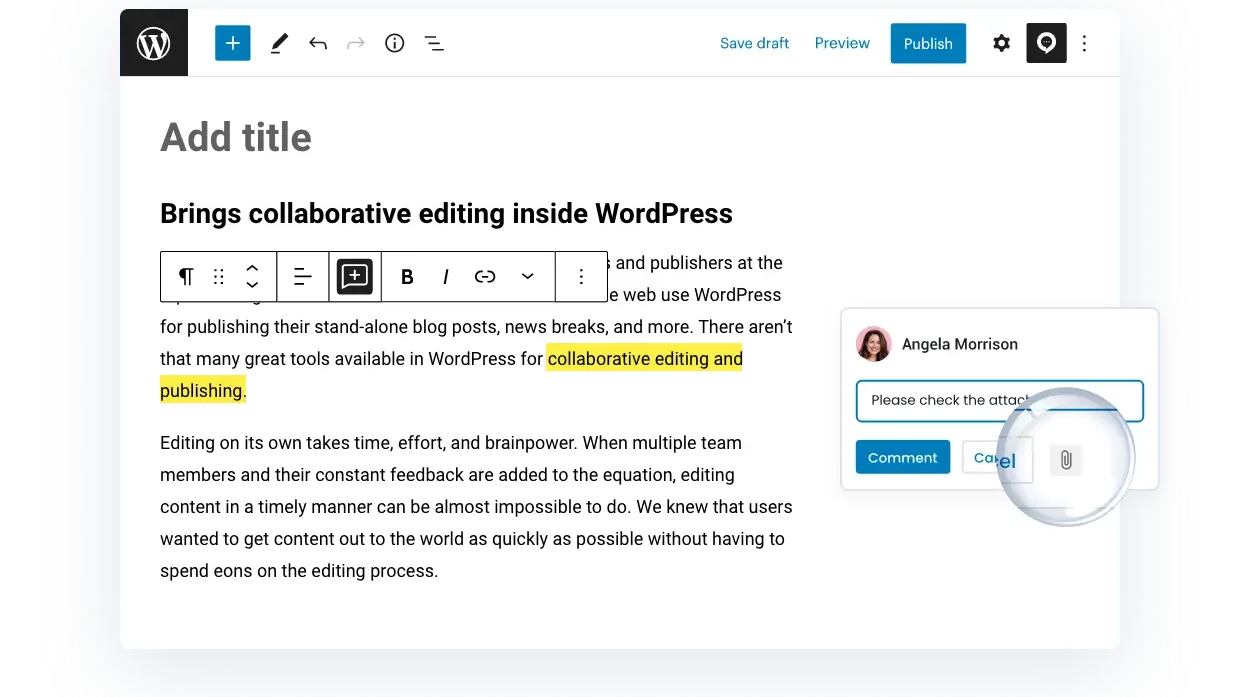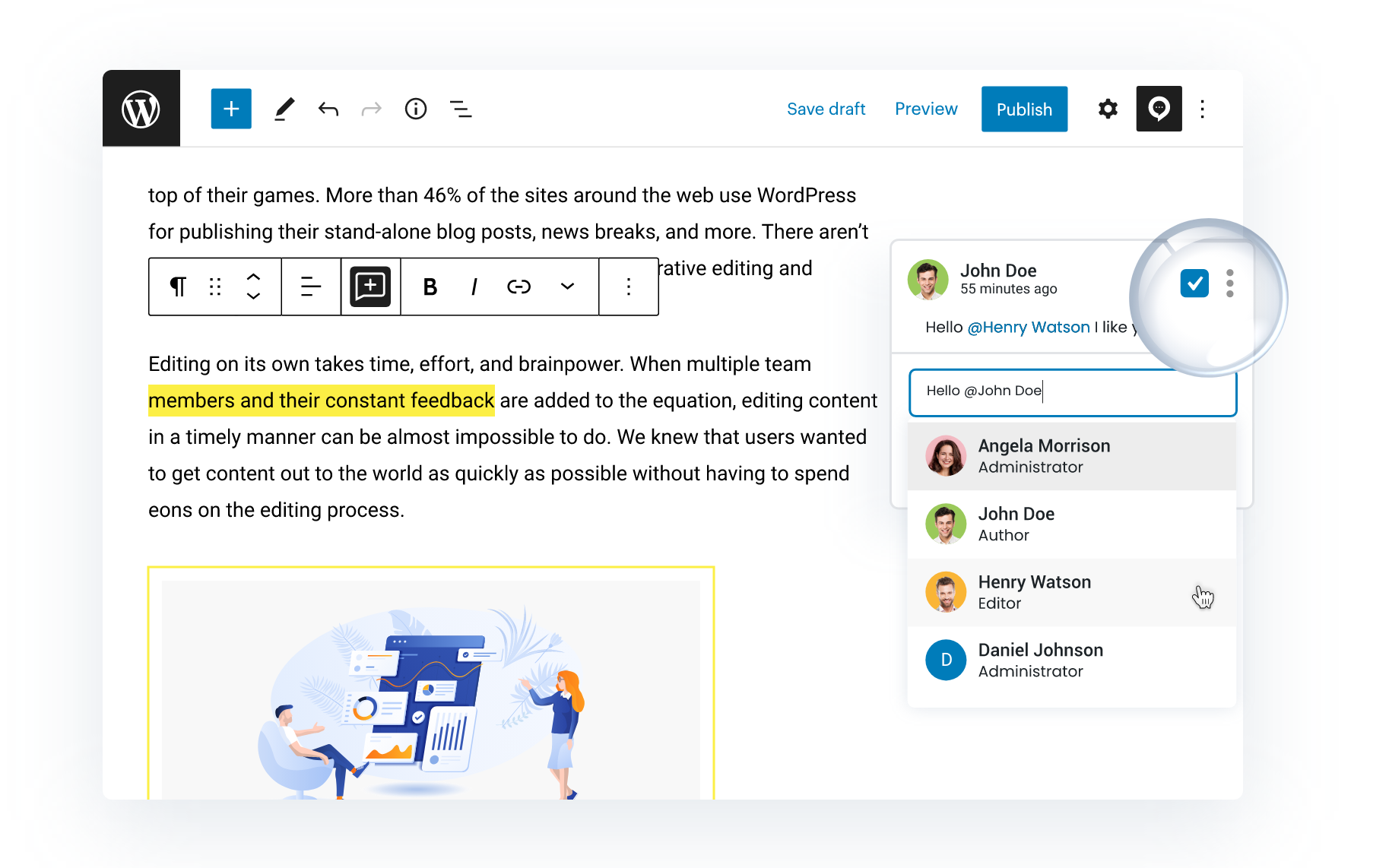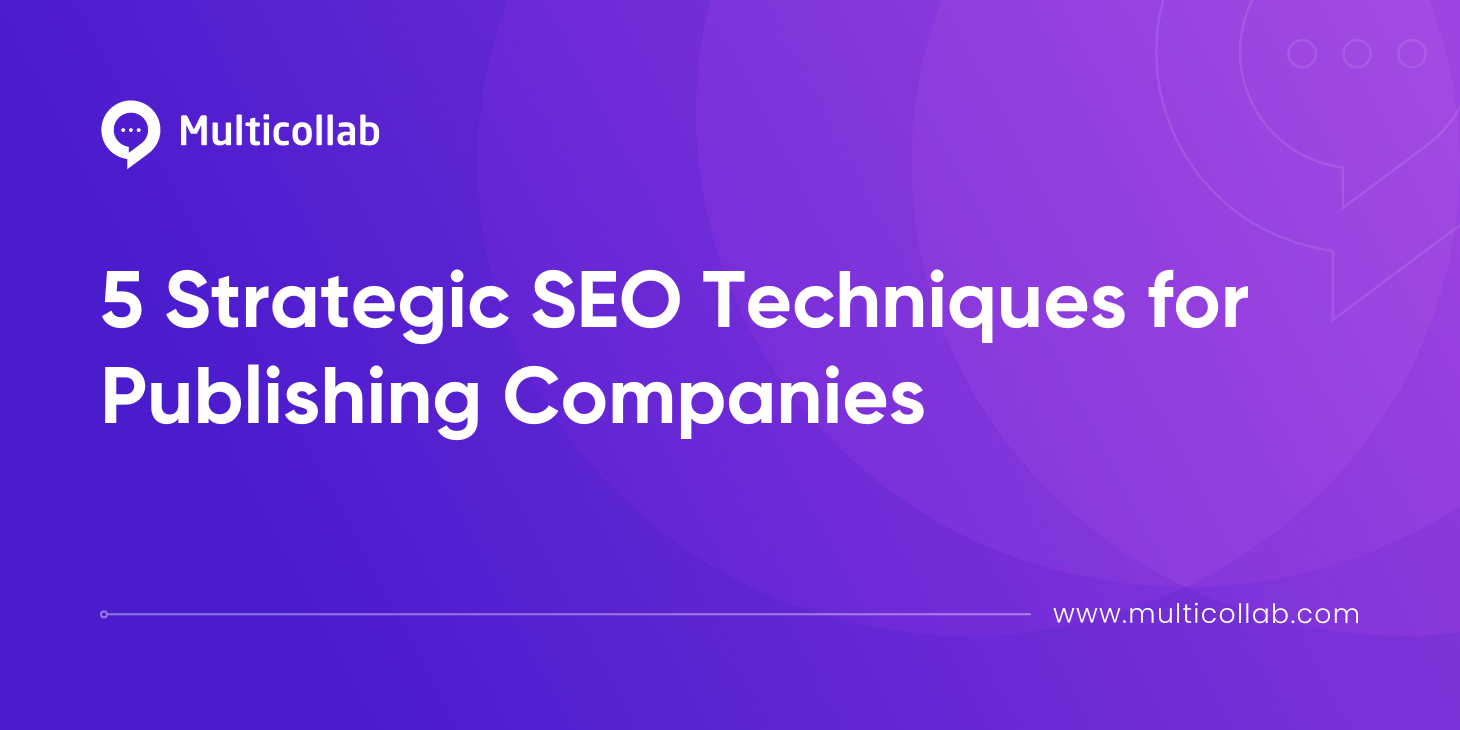Table of Contents
Publishers operate in an industry saturated with content, where information is abundant, and attention spans are short. Hence, the success of publishing companies is based on their ability to be seen and heard. A robust SEO strategy guides publishers toward increased visibility and organic traffic. The benefits of SEO publishing are manifold: higher traffic translates to elevated revenue while enhancing the site’s reputation and authority.
However, the path to SEO success has its complexities. Publishers often grapple with SEO challenges such as algorithm updates, keyword research, and content optimization. The need for an effective strategy is evident, or else the journey can be overwhelming.
In this blog post, we’ll delve into the world of SEO publishing, uncovering five strategic techniques tailored for publishing companies seeking to amplify their content reach and enhance their online presence.
Understanding the Importance of SEO in Publishing
Beyond being a mere tool, SEO is a strategic imperative publishers cannot overlook. Let’s look at the many implications and applications of SEO within the publishing industry.
Driving Organic Traffic: SEO acts as the driving force that leads audiences to a publisher’s website. By optimizing content for search engines, publishers establish the bedrock for digital visibility. The art of SEO ensures that readers find their way to the publisher’s virtual doorstep when they seek relevant content.
Impact on Readership: The synergy between SEO and readership is undeniable. A well-crafted SEO strategy enables publishers to reach their targeted audience effectively. Quality content, harmonized with SEO best practices, significantly enhances the chances of content resonating with the intended readership.
Relationship between SEO and Reputation: Search engine rankings hold a considerable influence on a publisher’s credibility. Higher visibility not only increases the likelihood of reaching wider audiences but also positions the publisher as an authoritative voice in their field. SEO, therefore, becomes a base for establishing and fortifying a publisher’s reputation.
SEO and Revenue: The financial implications of robust SEO practices are noteworthy. Enhanced visibility doesn’t just bring in more readers; it opens avenues for revenue generation. Whether through ad placements, subscriptions, or sponsorships, a well-optimized website is better poised for monetization.
SEO as a Part of Content Strategy: SEO is not an optional add-on; it is an integral part of a comprehensive content strategy. Without it, almost all content one produces will not reach the expected audience.
5 Strategic SEO Techniques for Content Visibility
Google rewards higher-quality content with improved rankings, making it essential for publishers to elevate their content game. Its algorithms have evolved to prioritize user experience, and at the heart of this experience lies content quality.
Prioritize content quality
“To succeed as an online publisher, crafting content that is not only original but also engaging and valuable is imperative. Creating original content can come with a blindspot; if your content is not imparting value to its audience, its originality serves no purpose.”
Nimesh Patel, Product Growth Manager @ Multicollab
High-quality content, as determined by factors such as relevance, depth, and engagement, is more likely to secure a better spot on search engine result pages. This elevation in visibility catalyzes increased organic traffic and, consequently, improves the site’s reputation.
Enter Multicollab, a collaborative editing platform that empowers publishers to maintain consistent content quality. By fostering effective collaboration among content creators, editors, and stakeholders, Multicollab emerges as a game-changer in the quest for excellence.
Multicollab introduces a suite of features that streamline the content creation process. Real-time editing ensures seamless collaboration, while the suggestion mode allows contributors to offer insights without directly altering the content. Guest collaboration widens the scope for diverse input, and the option to attach documents to comments provides greater context for enhanced understanding.

Collaborative editing with Multicollab not only ensures quality but also brings a host of benefits. The traceability of changes allows for a transparent workflow, minimizing errors and ensuring a polished final product. With time-saving mechanisms embedded in the collaborative process, publishers can focus on refining content rather than navigating logistical challenges.

This proves how Multicollab is a strategic ally for publishers, bridging the gap between individual creativity and collective excellence. By prioritizing content quality and leveraging the collaborative power of Multicollab, publishers can navigate the competitive landscape with confidence, secure in the knowledge that their content not only meets but exceeds the standards set by both audiences and search engines.
Conduct keyword research
Effective keyword research leads your content to its intended audience. By understanding the language your audience uses when searching for content, you can tailor your material to align seamlessly with their queries. This alignment is the key to securing higher search engine rankings and, consequently, attracting organic traffic.
Conducting effective keyword research involves a combination of strategy and the right tools. Navigating these concepts empowers publishers to decide which keywords to target.
- Platforms like Ahrefs, Semrush, and Moz offer invaluable insights into keyword trends, competition analysis, and potential opportunities.
- Identifying relevant long-tail keywords, exploring competitor keywords, and utilizing tools to gauge keyword difficulty can help.
- Search volume indicates how often a keyword is searched, while keyword difficulty measures the competition for a specific term.
- Search intent, another vital aspect, focuses on the user’s purpose behind a search. Understanding the user’s search intent can help you tailor your content to meet the needs of the searcher, making it more useful and boosting its ranking potential.
In order to effectively incorporate keywords, it is recommended to use long-tail keywords for specificity and relevance. It is best to avoid keyword stuffing, ensuring that the integration of keywords feels natural and enhances the overall readability of the content.
Adopt an internal linking strategy
By strategically linking relevant pages within your website, you guide search engine crawlers to important content. This not only helps ensure that your pages are indexed but also contributes to improved search engine rankings. This deliberate interconnection of pages within a website is not just a navigational tool; it is vital in boosting page visibility, sharing authority, and improving the overall user experience.
When top-ranking pages within your site link to lesser-known pages, they pass on some of their credibility. This strengthens the SEO standing of the linked pages and enriches the user experience by providing a seamless journey through related content.
Best Practices for Internal Linking:
- Utilize descriptive anchor text that succinctly conveys the content of the linked page.
- Find a balance between sufficient and excessive internal linking – too few links may hinder navigation, while an excess can dilute the impact.
- Prioritize user experience by ensuring that every link serves a genuine purpose for the reader.
To streamline this process of inserting and managing internal links during the content creation/editing phase, a collaborative editing tool like Multicollab can significantly help. Its features empower content creators, editors, and stakeholders to seamlessly insert and manage internal links during the content creation and editing phases.
Manage duplicate content issues
Duplicate content poses significant threats to visibility and search engine rankings. Associated with duplicate content is “content cannibalization,” where similar or identical pages within a website compete for the same keywords, causing confusion for search engines and diluting the authority of the content.
Duplicate content confuses search engines, making it challenging for them to determine the most relevant and authoritative page to display. This confusion often results in lower search rankings and diminished visibility.
Solutions to Manage Duplicate Content:
Combatting duplicate content requires a multi-faceted approach.
- Use canonical tags – they signal to search engines which version of a page is the preferred, consolidating authority and avoiding confusion.
- Setting up redirects from duplicate URLs to the canonical version streamlines the indexing process.
- Reoptimizing content for different target keywords helps differentiate similar pages, eliminating the risk of content cannibalization.
Muticollab can help WordPress teams prevent this issue by monitoring content changes and edits in real-time. By facilitating collaboration among content creators, editors, and stakeholders, Multicollab ensures that content remains authentic and original. The Activity Timeline monitors collaboration and tracks progress across all pages and posts with easy filtering to view by user, content categories, and time stamps.
Optimize for on-page and off-page SEO
While on-page SEO involves optimizing elements directly on your website, off-page SEO, on the other hand, extends beyond your website. Managing content, HTML tags, and site architecture is part of the on-page SEO while activities like link building, social media engagement, and influencer outreach are all parts of off-page SEO.
Let’s take a look at some of the ways you can optimize your site’s on-page SEO.
- Craft high-quality, relevant, and engaging content. Incorporate target keywords naturally within the content and use descriptive headings to enhance readability.
- Ensure that HTML elements like title tags, meta descriptions, and header tags are optimized with relevant keywords. This not only aids search engines in understanding your content but also improves click-through rates.
- Streamline site architecture for easy navigation. Create a logical structure with clear internal linking, facilitating both user experience and search engine crawlers.
Here’s how you can optimize your site’s off-page SEO.
- Acquire high-quality backlinks from reputable websites. This improves your site’s authority and signals to search engines that your content is valuable.
- Actively engage on social media platforms to increase brand visibility. While social signals, such as likes and shares, don’t directly impact search rankings, sharing content on social media can boost engagement. If readers spend more time actively engaging with your content, this can positively influence ranking potential.
Multicollab proves to be a valuable tool in the pursuit of effective on-page SEO. Real-time editing and version tracking streamline the review process, allowing for seamless collaboration. This not only enhances the quality of on-page content but also contributes to a more cohesive and impactful SEO strategy.
Overcoming Common SEO Challenges and Roadblocks in Publishing
Recognizing and overcoming the hurdles of SEO is important for publishers striving to maintain a competitive edge. Here are some common SEO challenges and roadblocks faced by publishers:
High Competition for Keywords:
Solution: Embrace long-tail keywords and focus on niche content. Tailoring content to a specific audience not only mitigates competition but also enhances relevance.
Google’s Constant Algorithm Updates:
Solution: Stay proactive by conducting regular SEO audits. Staying updated with the latest SEO news and changes ensures that your strategy aligns with Google’s evolving algorithms.
Keeping Content Relevant and Fresh:
Solution: Implement effective content planning and collaboration. Regularly update and repurpose content to align with current trends and audience needs.
Technical SEO Issues:
Solution: Conduct regular technical SEO audits. Address issues such as broken links, page speed, and mobile optimization to maintain a healthy website structure.
Challenges in Measuring SEO Performance:
Solution: Establish clear KPIs and leverage analytics tools. Regularly assess key metrics such as organic traffic, bounce rate, and keyword rankings to measure and refine your SEO strategy.
Multicollab proves to be a valuable asset for enhancing a publishing site’s SEO through its streamlined collaboration and content creation features. By simplifying the process of updating and refreshing existing content, Multicollab supports the crucial practice of regularly updating content for SEO success.
Take the Next Step: Improve your SEO Strategy with Multicollab
Now you know of the many benefits that an effective SEO publishing strategy can bring – increased visibility, organic traffic, enhanced site reputation, and, ultimately, elevated revenue.
To truly optimize your website’s performance, consider the steps we have discussed above. Recognizing that the collective efforts of content creators, editors, and stakeholders can play a pivotal role in achieving SEO excellence can give you a great headstart. And this is where Multicollab emerges as a game-changer.
So, why wait? Ensure that your SEO publishing team works seamlessly towards a shared SEO goal. Get started with integrating Multicollab into your workflow – take the next step towards improving your SEO strategy today.






